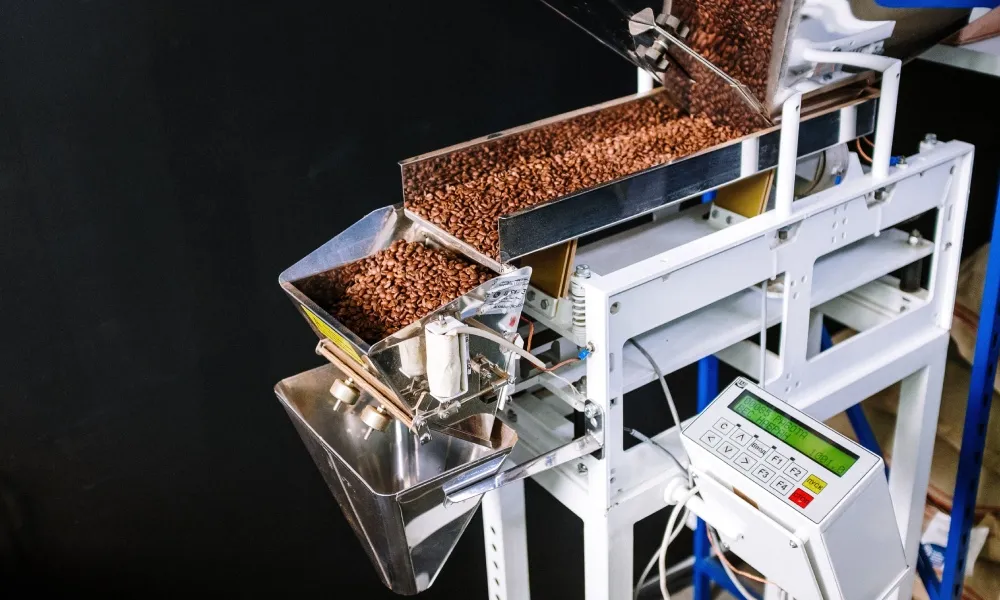In today’s competitive manufacturing landscape, a weight filling machine serves as the cornerstone of efficient production lines, offering unparalleled accuracy and consistency for businesses seeking to optimize their packaging operations. These sophisticated systems have become essential across numerous industries where precise measurements can make the difference between profit and loss.
The Evolution of Filling Technology
Weight filling machines have undergone remarkable transformation since their inception. What began as simple mechanical devices has evolved into highly sophisticated equipment incorporating advanced algorithms and sensor technology.
The modern weight filler represents a perfect marriage between mechanical engineering and digital precision, offering:
- Adaptive filling algorithms that learn from previous operations
- Real-time measurement capabilities with microsecond response times
- Integrated quality control systems that flag deviations instantly
- User-friendly interfaces requiring minimal operator training
Understanding the Core Functionality
At their essence, weight filling machines operate on a fundamental principle: they measure product by weight rather than volume, ensuring consistent quantities regardless of density variations or temperature fluctuations.
“Weight-based filling technology has revolutionized Singapore’s food manufacturing sector by providing up to 99.8% accuracy levels even with challenging products like viscous sauces and particulate mixtures,” notes a leading Singapore weight filling machine expert.
This approach offers significant advantages over volumetric filling, particularly for products whose density may vary between batches or during the filling process itself.
Key Applications Across Industries
The versatility of weight filling technology makes it indispensable across numerous sectors:
Food and Beverage
In food production, weight fillers handle everything from liquid sauces to granular ingredients with exceptional precision. They excel particularly with:
- Premium products where exact quantities affect profit margins
- Ingredients that may settle or compact during packaging
- Products requiring strict nutritional labeling compliance
- Items with significant batch-to-batch viscosity variations
Pharmaceuticals
Few industries demand higher precision than pharmaceuticals, where dosage accuracy can literally become a matter of life and death. Weight filling machines provide the exacting standards required for:
- Liquid medications requiring precise dosing
- Powdered pharmaceuticals with complex flow characteristics
- Products subject to stringent regulatory oversight
- High-value medications where waste reduction is critical
Chemicals and Cosmetics
The chemical industry relies heavily on weight-based filling systems for handling potentially hazardous materials safely while maintaining precise quantities. Similarly, cosmetics manufacturers value these systems for their ability to handle products ranging from watery lotions to thick creams without recalibration.
Advanced Features Driving Industry Adoption
Today’s cutting-edge weight filling machines incorporate numerous technological innovations:
Intelligent Calibration Systems
Modern systems can self-calibrate throughout production runs, compensating for environmental factors like temperature, humidity, and even subtle changes in ingredient composition.
Multi-head Configurations
“The introduction of multi-head weight filling technology has allowed Singapore manufacturers to increase throughput by up to 300% while maintaining precision levels that meet export standards for even the most demanding international markets,” according to Singapore weight filling machine industry analysis.
These configurations enable single machines to handle multiple product lines simultaneously, dramatically increasing overall efficiency.
IoT Integration
The latest generation of weight filling machines features comprehensive IoT capabilities, allowing:
- Remote monitoring of performance metrics
- Predictive maintenance scheduling
- Automatic production reports generation
- Integration with broader manufacturing execution systems
The Economic Impact of Precision Filling
The financial implications of implementing advanced weight filling technology extend far beyond the initial investment. Organizations that have embraced these systems report significant improvements across multiple performance indicators:
- Product giveaway reduction of 2-5% translating to substantial raw material savings
- Decrease in quality-related returns and customer complaints by up to 75%
- Labor efficiency improvements of 35-50% through reduced manual intervention
- Extended equipment lifecycle through predictive maintenance capabilities
- Enhanced brand reputation resulting from consistent product quality
“Singapore manufacturers implementing high-precision weight filling machines have documented average ROI periods of 8-14 months, with the most significant gains seen in premium product categories where overfilling historically represented substantial profit erosion,” reveals a recent Singapore weight filling machine implementation study.
Regulatory Compliance and Consumer Protection
Beyond operational efficiency, weight filling machines play a crucial role in regulatory compliance. Consumer protection laws in most developed economies mandate strict adherence to stated product quantities, with significant penalties for consistent underfilling.
Modern systems provide comprehensive audit trails documenting fill weights, allowing manufacturers to:
- Demonstrate compliance with weights and measures regulations
- Respond effectively to regulatory inspections with detailed production data
- Maintain consistent records for quality certification requirements
- Protect consumers while simultaneously protecting business interests
Selecting the Optimal Solution
When evaluating weight filling options, manufacturers should consider:
- Production volume requirements
- Product characteristics (viscosity, particulates, foaming tendency)
- Cleaning and sanitization needs
- Available factory space
- Integration requirements with existing lines
Environmental Sustainability Considerations
The precision offered by weight filling machines delivers significant environmental benefits through waste reduction:
- Minimized product loss during filling operations
- Reduced packaging waste from rejected products
- Lower energy consumption per unit produced
- Decreased water usage during cleaning cycles
- Smaller carbon footprint through optimized production efficiency
The Future of Filling Technology
As manufacturing continues its digital transformation, weight filling machines stand at the forefront of innovation. Emerging technologies like artificial intelligence and machine learning are being incorporated to create systems that not only measure with precision but actually anticipate and adapt to changing product characteristics.
The economic benefits of investing in high-quality filling equipment cannot be overstated. Reduced product giveaway, minimized waste, enhanced quality control, and increased throughput combine to deliver impressive return on investment figures for businesses that implement modern weight filling technology.
For manufacturers seeking to optimize their production processes while ensuring consistent product quality, few investments offer more immediate and lasting benefits than the implementation of an advanced weight filling machine.





